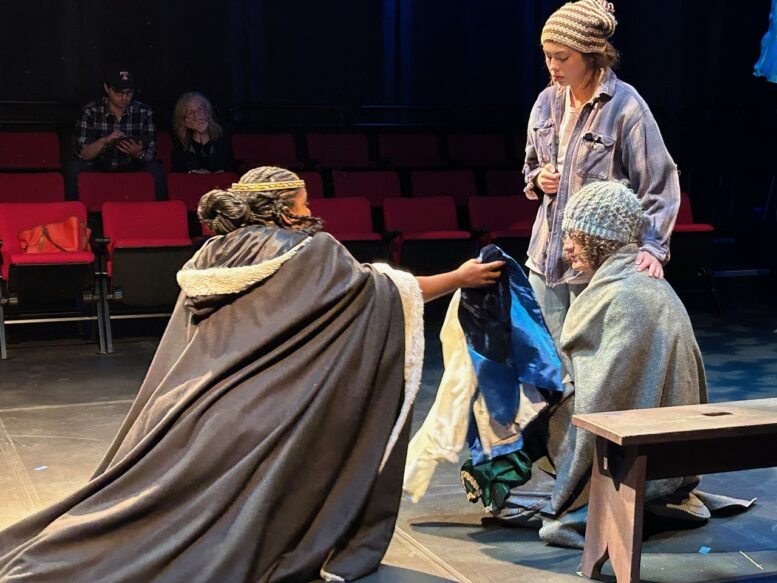By DAVID DUPONT
BG Independent News
‘Poor Clare’ is set in early 13th century Italy. The scenery tells us as much as does what the characters’ costumes. What comes out of their mouths, though, is redolent of 21st century slang, including swearing.
This anachronistic juxtaposition establishes that the story and its message is both of its time and timeless.
“Poor Clare” by Chiara Atik and directed by Sara Chambers opens tonight (Oct. 17) at 8 p.m. in the Eva Marie Saint Theatre on the BGSU campus. The show continues Friday and Saturday at 8 p.m. with matinees at 2 p.m. Saturday and Sunday and Oct. 24-26 at 8 p.m. with a 2 p.m. matinee Oct. 26. Click for tickets.
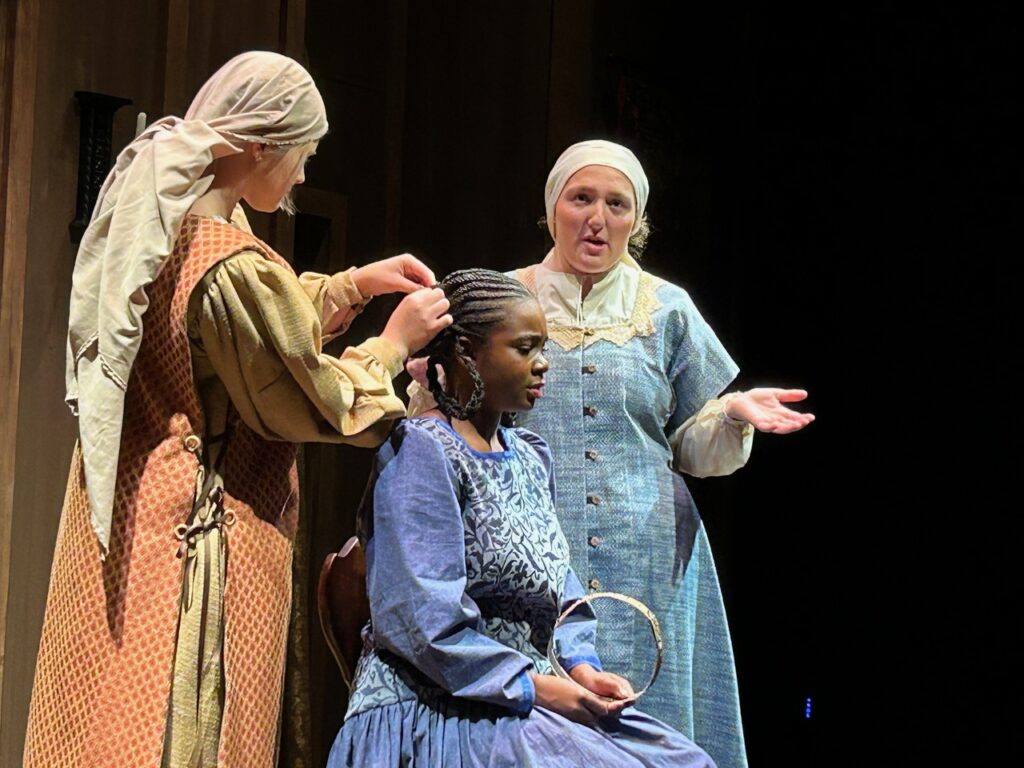
Clare (Nykera Gardner) is wide eyed and naive. Her family is rich, though they put on airs of not being that rich. She refers to their summer home, not their palazzo. They are certainly not as wealthy as the silk merchants family, not to mention the families in other cities who have their own armies.
The gossip Clare hears from her maids, Peppa (Grace Whetstone) and Alma (Laci Haller), as they do her hair is her connection to the outside world.
Among the tales she hears is of a young man who stripped naked in the city square in front of the bishop, who then cover the man’s nakedness with his own cloak.
In these exchanges, Clare comes through as sensitive.
When Peppa notes that the man, Francis stripping was his renunciation of wealthy status, Clare responds: “I mean, yeah, it’s crazy. There are a lot of really desperate people right now, it’s horrible. It’s a horrible political climate. We should all be pitching in.”
Then she talks about the feast they give on her uncle’s feast day where everyone is fed for three days.
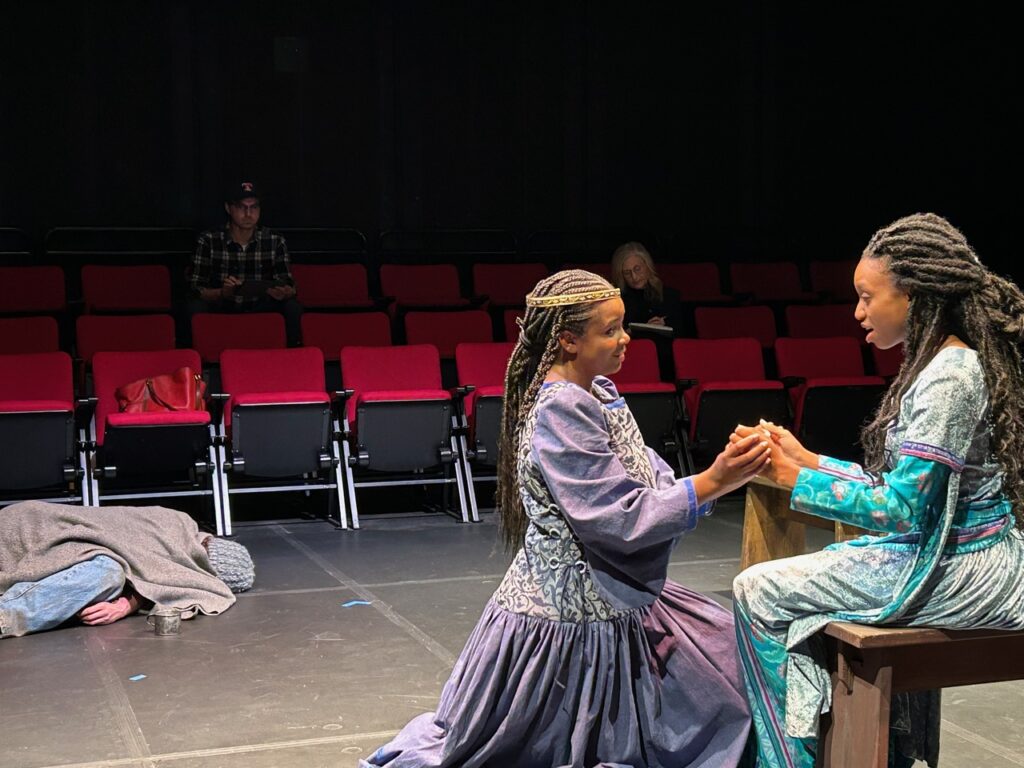
When she and her sister Beatrice (Airené Williams) encounter a beggar (Kyle Metzler), they scream and run away laughing. But after another encounter Clare rushes out and gives him the contents of her purse.
This draws her to Francis (Owen Minchau). His dream is to upend the social order that puts people like him at the top and others at the bottom. All are undeserving of their places.
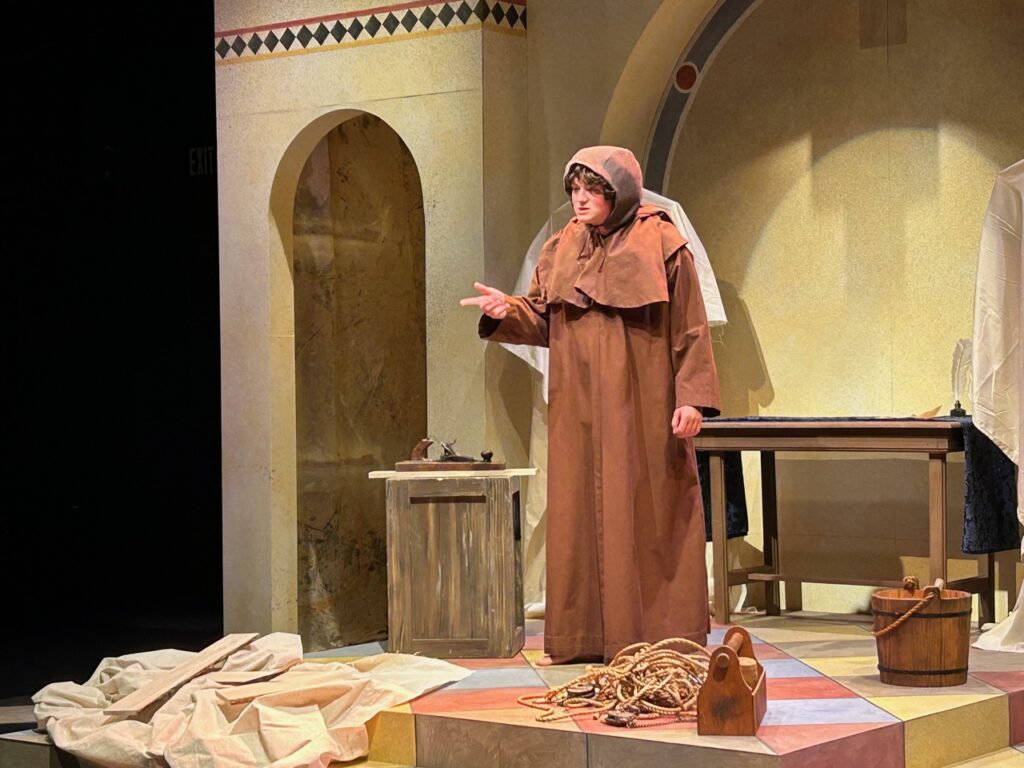
Francis is very much not the icon. The playwright’s choice of contemporary slang gives us a young man, searching blindly, grasping at socio-economic concepts, and trying to bring them to earth. He grows impatient sometimes when asked for specifics.
He dismisses the idea of giving back. How can you give back when they never had it in the first place, he says.
When Clare asks how she can help, he tells her to go directly to the poor, who live under the bridge.
She is concerned. How will she know who to give it to? Will she offend them by assuming they are poor.
They know they are poor, he tells her. They live under a bridge.
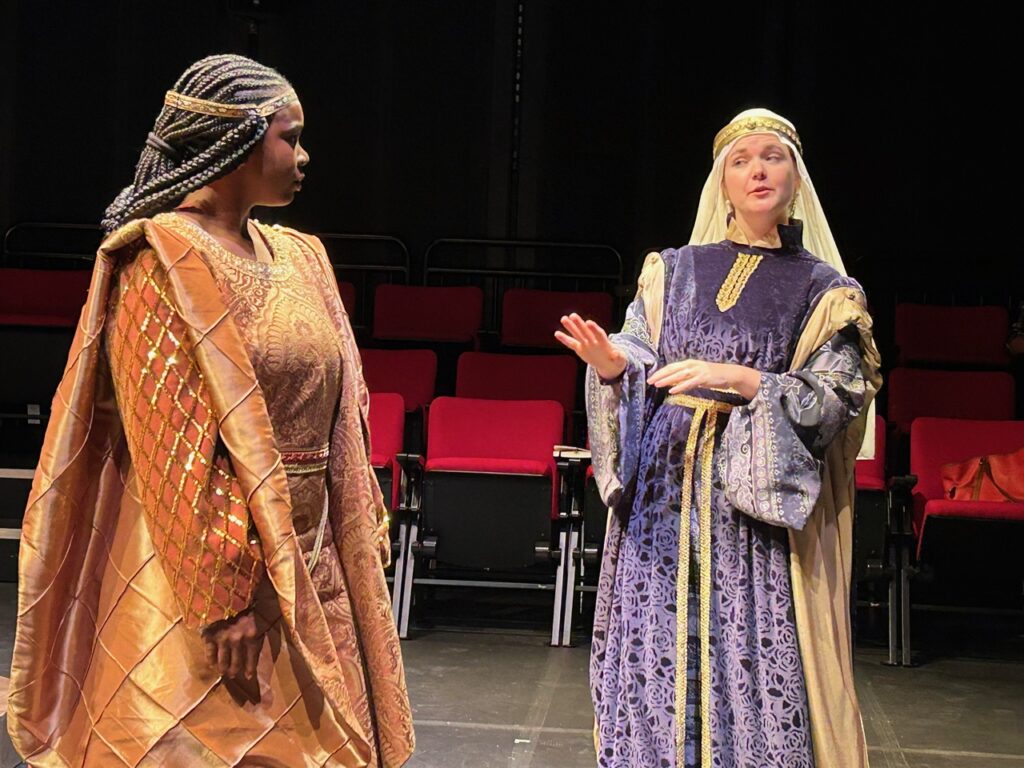
She enlists other wealthy women and she collects garments. But the luxurious fabrics hardly meet the needs of the poor. (The poor are dressed in contemporary clothes.)
She asks the woman (Gabrielle Dunn) what they need. She gets a long, long list.
This is the start of her journey.
Her family has other ideas. She has become engaged to an older rich man — she has no say in the matter and understands that.
As her wedding date approaches and the preparations are afoot her suitor lavishes her with gifts including an ostentatious necklace.
Clare and her sister joke that it is as if their mother was picking as Clare’s husband someone she’d like for herself.
Yet for all her pressuring her daughter on the details of the nuptials, the mother (Angelina Sorge), also shows where Clare’s empathy may come from.
She talks about her own travels to the Holy Land, and her encounters close up with the poverty. They pilgrims gave all they had, including the provisions they relied on, to people. When she returned to Naples and was greeted by a lavish banquet, she threw up.
But that concern for humanity changed into her concern for her own children.
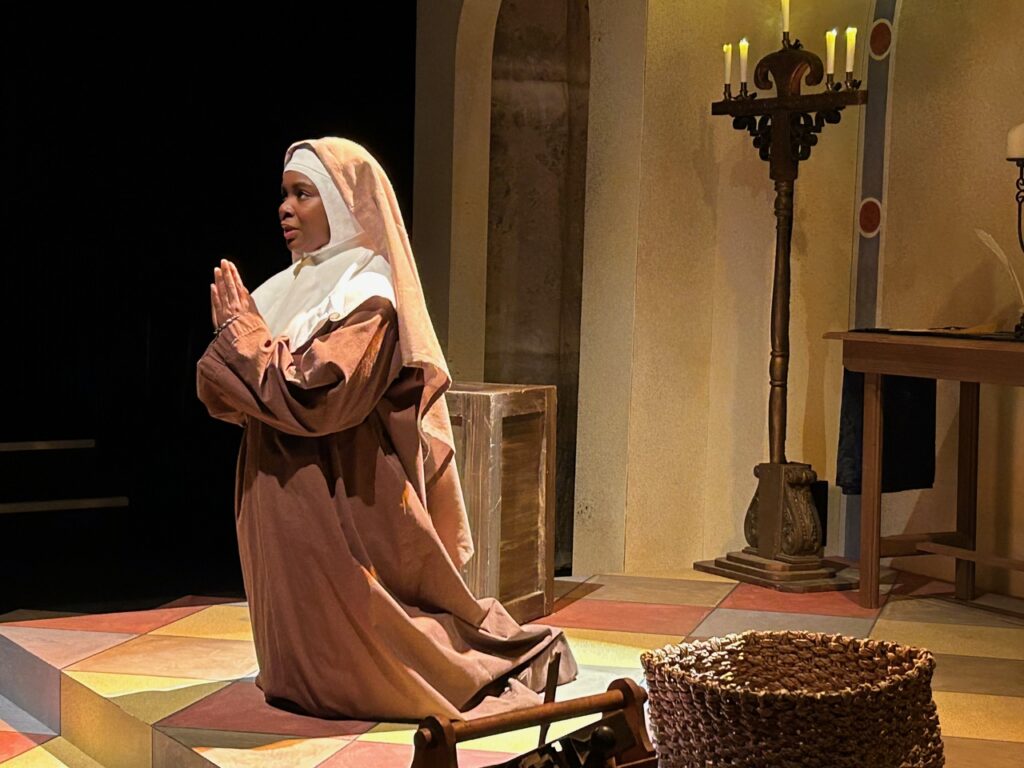
Clare ends up renouncing all this. The play stints on the details of her separation from her family.
In the end, Clare dressed in a nun’s habit kneels in a simple chapel. She frames her message of concern for the poor in strictly contemporary terms, telling of a woman encountering a homeless man in a luxury shop. She picks up a few unneeded items, while he wanders around enjoying the warmth until the shelter opens.
Clare’s testament may be the last word of the play, but is an ongoing challenge to those who hear it and take it to heart.

